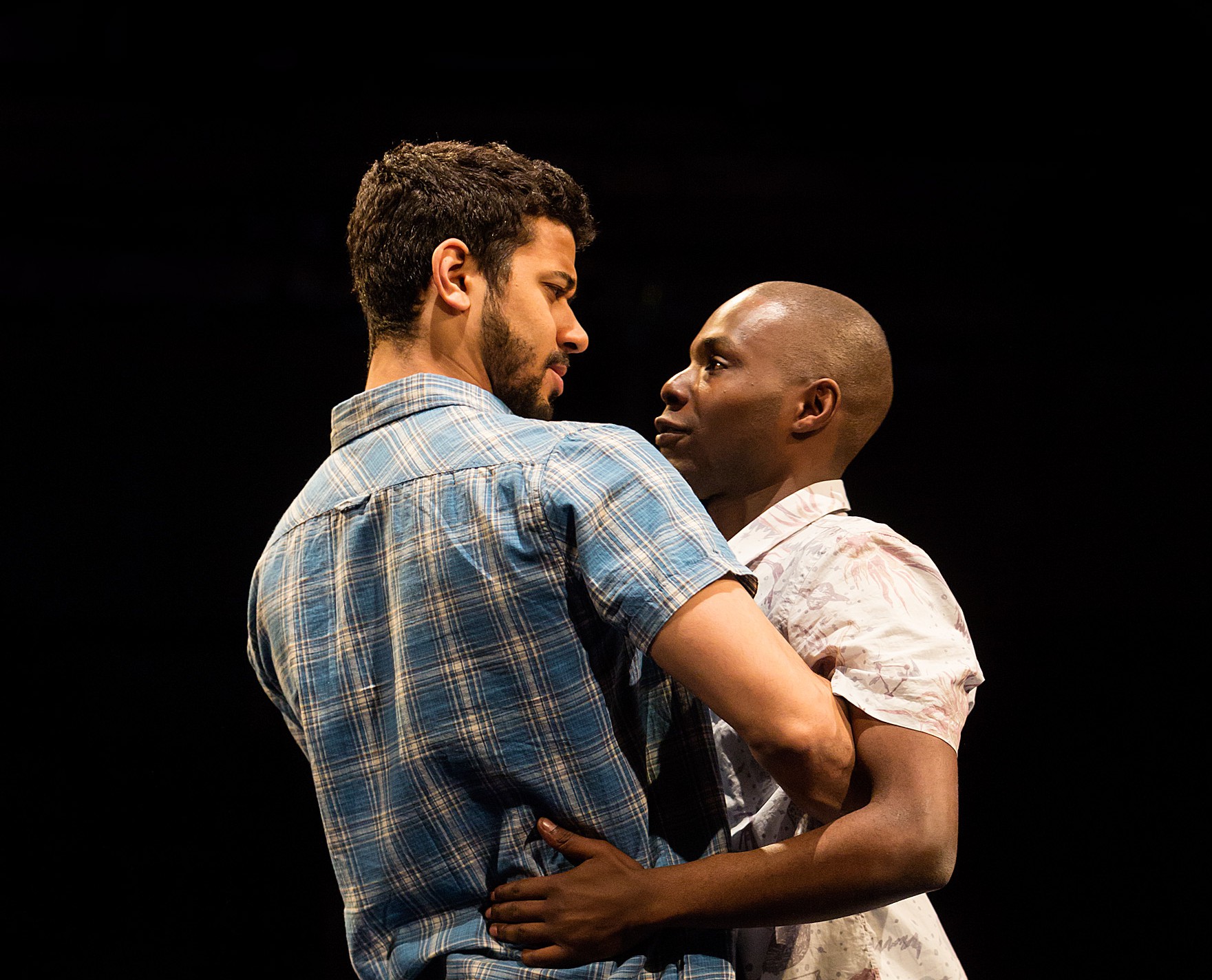
© Jonathan Keenan
UPSTAGED RATING: 




“If music be the food of love, play on” and certainly the production of Shakespeare’s Twelfth Night at Manchester’s Royal Exchange is full of music, mirth and mischief, particularly during one particular night of mayhem when encouraged by Sir Andrew Aguecheek (Harry Attwell), a drunken Sir Toby (Simon Armstrong) wakes up the household with his electric guitar.
Following a terrible storm, Viola has found herself shipwrecked and washed up on the sandy and unfamiliar shores of Illyria. In her only bid for survival, Viola (Faith Omole) disguises herself as male, changes her name to Cesario, and goes to work in the household of Duke Orsino (Kevin Harvey). With powerful waves of unrequited love, gender and sexual identity guiding Shakespeare’s verse – this production at the Royal Exchange is a complete success and arguably one of the best Shakespeare adaptations that I have seen.
Quirky casting by Vicky Richardson teamed with Jo Davies’ intelligent direction makes for a refreshing interpretation of a play that was written over 400 years ago. Kate Kennedy’s striking Olivia towers over Faith Omole’s diminutive Cesario; confidante Cesario holds the punch bag gingerly while Orsino bolsters and pummels. Our Malvolio, played by Anthony Calf, gives a perfect portrayal of the party-pooper and prissy steward. Davies and Designer Leslie Travers substitute Malvolio’s traditional yellow stockings and cross-gartered look in favour of gaudy lycra MAMIL attire.
Kate O’Donnell steals the show as a witty, lively and self-assured Feste. Giving a whole new perspective to the character, O’Donnell exudes elegance and foolery. Dressed in a luminous turquoise get up and feathered head-dress, she reminds me of a glamorous Statue of Liberty. Suggestive of freedom in regards to gender and sexual identity and almost definitely reminding us of the lack of trans actors on the professional stage.
Alex Baranowski’s Eastern European musical score of fiddler, harpsichord and folk vocalist Kate Young provide a pleasing backdrop to the romantic entanglements, frivolous comedy and disguises in love. In a poignant framing, the Eastern tones lay the sombre tone for Viola’s shipwreck at the very start and then return for The Wind and The Rain ditty delivered by Feste at the end of the performance. As the lights fade and the melancholy returns O’Donnell feeds new life and meaning into Shakespeare’s poetry, singing the final line “When I was a little boy.” Absolutely captivating.
-Kristy Stott
Twelfth Night runs at Manchester’s Royal Exchange Theatre until 20 May 2017 and you can get your tickets here.

